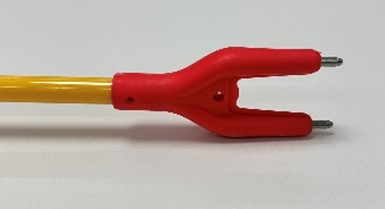Genesus, overview of world markets. European Union and Spain. June 2024

A year ago, we witnessed the development of an unprecedented situation in the market. This appears to be setting the trend for our sector to transform and adapt to the ongoing changes affecting production and the MEAT industry.
The price on the Mercolleida Commodity Exchange is currently €1.8 euro/kg live weight. This price point has been repeated in the market for the past ten weeks. Producers want to raise prices as supply decreases, but the meat industry cannot afford this due to decreased demand for meat . This spring, pork consumption in Northern Europe is not high enough.
Source: Mercolleida Commodity Exchange
Prices are lower than last year, but there is still a shortage of pigs, as evidenced by the prices of piglets. Such a high price for piglets contributes to an increase in sales weight.
Source: Mercolleida Commodity Exchange
On the one hand, the weight of sales of slaughter pigs is gradually increasing on the market; from 115.5 kg in 2020 to 122.2 kg in 2024 . Producers are trying to optimize production by increasing the number of kilograms: by increasing the selling weight they hope for a sudden increase in prices and delay the arrival of finishing piglets, avoiding purchases at still very high prices, although currently prices for piglets weighing 20 kg have fallen to €73 euros/head plus allowances.
However, despite the existing problems for pig producers, the year remains profitable, as evidenced by data from the SIP Consultors agency for last year.
Source: Mercolleida Commodity Exchange
According to MAPA, from January to March 13,800,837 pigs were processed compared to 14,038,812 a year earlier, which means a decrease in supplies of 1.7%, while the weight of sales of pigs decreased by only 0.52% to 1,315 673 tons compared to 1,322,580 tons a year earlier.
Prices in Spain are still higher than in other European Union countries, and there are hopes that Germany will raise the price of pork so that the industry can remain profitable.
Source: Mercolleida Commodity Exchange
The decline in exports to Asian countries in 2023 compared to 2022 does not contribute to strengthening meat prices:
- China: -25.4%
- Philippines: -36.2%
- Japan: -20.1%
- South Korea: -27.8%
- Taiwan: -30.7%
Taking all this into account, we can say that the Spanish pork industry has “embraced this new challenge”:
- Increasing vertical concentration of production.
- Decline in production in the European Union.
- Decrease in exports outside the countries of the European Union.
- Adaptation to new laws on keeping animals in the EU .
- Increase in livestock HEALTH problems.
- Lack of qualified personnel.
- Problems created by “high-yielding” genetics associated with increasing mortality rates of livestock on farms.
So, while changing and adapting to the new reality, as has happened more than once in the history of the industry, the Spanish pig sector still maintains its position in the world rankings.
Read together with it:
- Восстановление производства свинины в России: оптимистичные прогнозы до конца 2026 годаОб этом сообщила министр сельского хозяйства России Оксана Лут на заседании комитета по аграрным вопросам в Госдуме. В настоящее время организованный сектор уже показал положительную динамику, несмотря на резкое снижение объемов в Курской и Белгородской областях. Чтобы поддержать восстановление, правительство ввело новые льготные кредитования, и уже более половины заявленных кредитов направлены на...
- Цены на говядину в Ростовской области резко увеличилисьЦены на яйца, в свою очередь, колеблются в зависимости от затрат на корма, ветеринарные препараты, энергоресурсы и упаковку, однако в этом году они снизились на 18,35%. На фоне этого также наблюдается падение цен на некоторые фрукты и овощи, входящие в «борщевой набор»: капуста подешевела на 26,48%, картофель на 14,......
- В Красноярске приостановили работу павильона из-за нелегальной продажи мясаНарушения выявил Россельхознадзор, после чего было возбуждено административное дело против предпринимателя. Изъятое мясо направлено на уничтожение, а деятельность павильона будет приостановлена на 20 суток.
- В России растет популярность дистанционного сельского хозяйства: участники получают свежие продукты с фермыФермеры также предлагают возможности инвестировать в рогатый скот, предоставляя возможность "купить" корову и получать до 25% годовых в виде натуральных продуктов — молока, сметаны, сыра и масла. Алексей Жаров, фермер из Калужской области, сообщил, что в его хозяйстве выращивается от 70 до 94 различных культур, и урожай делится между участниками. Некоторые семьи из города оформляют "продуктовую по...
- Цены на яйца и мясо в Крыму увеличились из-за роста затрат производителейПо данным Крымского информационного агентства, в сентябре цены в регионе выросли на 0,8% по сравнению с августом. Услуги стали дешевле, но ограничения в предложении определённых продуктов также способствовали удорожанию. Несмотря на общую тенденцию, средняя стоимость яиц в Крыму остается ниже, чем по стране, с годовым снижением более чем на 15%.......
- Experts explain the mixed dynamics of meat prices in Russia.Chicken: Recovering from a Decline . After a spring decline, wholesale prices for broiler carcasses saw a sharp rise in September. According to the Poultry Farmers' Union, by September 21, the average wholesale price reached 190 rubles per kilogram—30% higher than a year ago. Albert Davleyev, president of Agrifood Strategies, notes that the increase is partly due to seasonal factors and is in line...
- Растущие цены на мясо в Ярославле: Почему курица становится более приоритетнойФермеры объясняют повышение цен увеличением затрат на топливо и комбикорм. Несмотря на рост производства мяса птицы, расходы на его содержание все еще высоки. В магазинах Ярославля куриная голень стоит около 220 рублей, свинина – от 270 до 500 рублей, а говядина колеблется от 700 до 1000 рублей за килограмм. Для покупателей на фоне удорожания куриного мяса растет интерес к утке, которая также дост...






























































